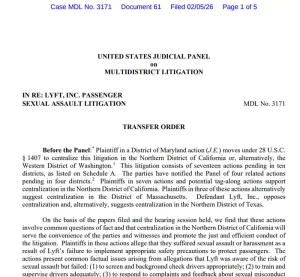For Hawaiians who experienced sexual abuse during childhood, the state has recently passed a significant piece of legislation. Survivors now have longer to file a civil lawsuit.
Senate Bill 2601, signed into law by Gov. Josh Green July 9, allows survivors to bring a civil case up to 32 years after turning 18. This significantly increases the previous deadline for civil action by over two decades, Mark Ladao of KHPR Hawaiʻi Public Radio reported.
In addition, the bill gives adults five years after recognizing that a psychological condition was caused by sexual abuse to file a civil case. The statute of limitations will apply to whichever time frame is longer.
The bill acknowledges that there are many reasons survivors of childhood sexual abuse may not disclose the abuse right away.
“ If you understand child sexual violence, many of them do not come forward right away for so many different reasons — whether that’s family dynamics or the weight of the world is on them to protect their family and their own self-preservation,” Lynn Costales Matsuoka, the executive director for the Sex Abuse Treatment Center at the Kapiʻolani Medical Center for Women and Children, told KHPR.
The legislation highlights that between 60-80% of survivors delay reporting sexual abuse, with an average delay of 20 years.
According to the bill, factors contributing to the delayed disclosure include the survivor’s limited ability to process or express the abuse and the psychological trauma it may cause later in life.
It also points out that survivors often know their abusers, fear retaliation or being accused of lying, and worry about the potential impact of disclosure on their families or friends.
“It is not uncommon for them to delay their disclosure and that’s what this bill speaks to. It provides an extended statute of limitations so that these children who will become adults have time to heal, have time to understand what has happened to them and have time to figure out what path they want to take,” Costales Matsuoka said in the interview with KHPR.
The new law applies to incidents of sexual abuse that occur on or after July 1 but is not retroactive.
Older cases remain subject to the previous state law, which allowed survivors eight years after their 18th birthday to file a civil lawsuit or three years after discovering an illness was linked to the abuse.
What Are The Statute Of Limitations In A Criminal Complaint?
In Hawaii, there is no statute of limitations for criminal prosecutions involving first- or second-degree sexual assault and continuous sexual assault of a minor under 14 years old. This means that a person can be prosecuted for these crimes at any time, regardless of how much time has passed since the incident. For other sexual offenses against minors, the statute of limitations is generally paused while the victim is still under 18 years of age, meaning the clock for prosecution only starts once the victim turns 18.
In a criminal case, only the state prosecutor decides whether to bring charges, and the burden of proof is higher than in a civil case. Furthermore, criminal cases do not focus on monetary compensation for damages as civil cases do.
Where to Turn For Legal Justice
If you have survived sexual assault as a minor in Hawaiʻi, you have rights and options to seek justice. Hawaiʻi has extended the statute of limitations for civil cases, allowing survivors more time to file a claim, even decades after the abuse occurred. Whether your case involves recent incidents or ones from years ago, I am here to help you navigate the legal process. Together, we can seek compensation for the emotional, physical, and financial harm caused by the abuse, even if the criminal justice system did not provide closure.
You don’t have to face this alone—contact my office for a confidential consultation, and let’s explore the steps we can take to hold those responsible accountable.




